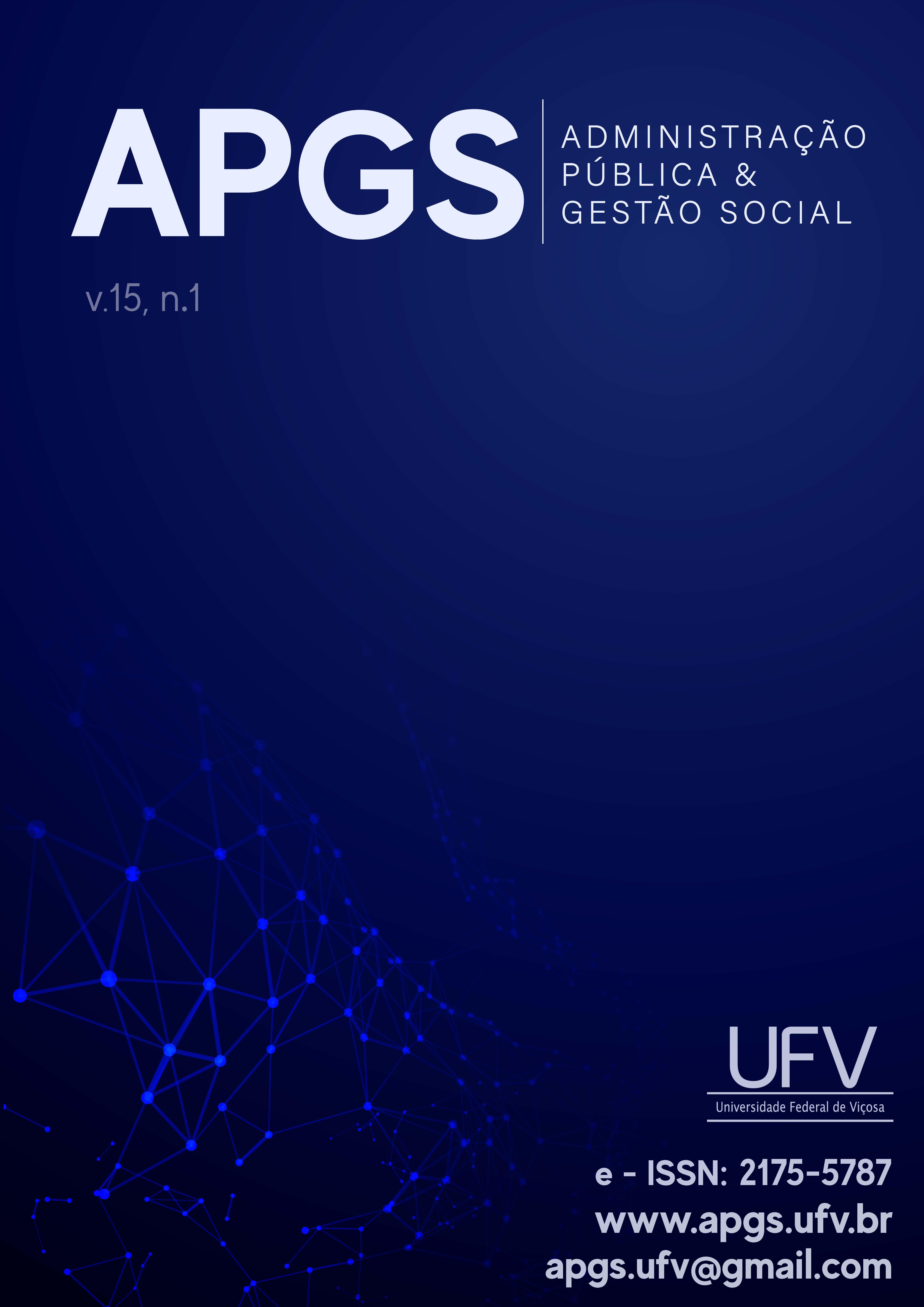Como Apoiar o Controle Social? Abrindo Espaço na Agenda para um Conselho Remoto de Cidadãos – o Conselho de Participação Social
DOI:
https://doi.org/10.21118/apgs.v15i1.14079Resumo
Contexto do caso: o caso se insere no contexto em que as atribuições de fomentar o governo aberto e a participação cidadã ganham destaque para além das clássicas atribuições de auditoria, inspeção e correição dos órgãos de controle interno.
Dilemas do caso: o dilema reside em estabelecer um conselho de participação social remoto, em um cenário cuja efetividade e legitimidade desse tipo de fórum vem sendo questionada e no qual o formato remoto possui limitações principalmente em garantir a representatividade das partes interessadas mais excluídas da sociedade.
Fechamento do caso: a narrativa leva o aluno a: (i) refletir sobre formas de participação em uma democracia representativa e sobre estratégias para definição de uma política pública na agenda governamental; (ii) opinar sobre o caminho que os gestores públicos devem seguir, levando em consideração que expandir a proposta de inclusão social pode significar em resistência do próprio governo, tanto em sua esfera executiva como legislativa, de aprovar a proposta e (iii) avaliar o uso de tecnologias da informação e comunicação para aumentar a participação e a representatividade de diversos grupos de cidadãos.
Downloads
Publicado
Como Citar
Edição
Seção
Licença

Este trabalho é licenciado sob uma licença Creative Commons Attribution-NonCommercial-NoDerivatives 3.0 International License.
Autores que publicam na Revista de Administração Pública e GestãoSocial (APGS) devem concordar com os seguintes termos:
- Autores mantêm os direitos autorais e concedem à revista o direito de primeira publicação, com o trabalho simultaneamente licenciado soba Creative Commons Attribution License, permitindo o compartilhamentodo trabalho com reconhecimento da autoria do trabalho e publicação inicial nesta revista.
- Autores têm autorização para assumir contratos adicionais separadamente, para distribuição não-exclusiva da versão do trabalhopublicada nesta revista (ex.: publicar em repositório institucional oucomo capítulo de livro), com reconhecimento de autoria e publicação inicial nesta revista.
- Autores têm permissão e são estimulados a publicar e distribuir seu trabalho online (ex.: em repositórios institucionais ou na sua página pessoal) a qualquer ponto antes ou durante o processo editorial, já que isso pode gerar críticas e sugestões proveitosas, bem como aumentar o impacto e a citação do trabalho publicado.
- Autores reservam o direito da editoria desta revista de efetuar, nos trabalhos originais, alterações de ordem normativa, ortográfica e gramatical, com vistas a atender sua política editorial e a manter opadrão culto da língua, respeitando, porém, o estilo dos autores.
- Autores assumem exclusiva responsabilidade pelas suas opiniões emitidas nos trabalhos publicados nesta revista.



